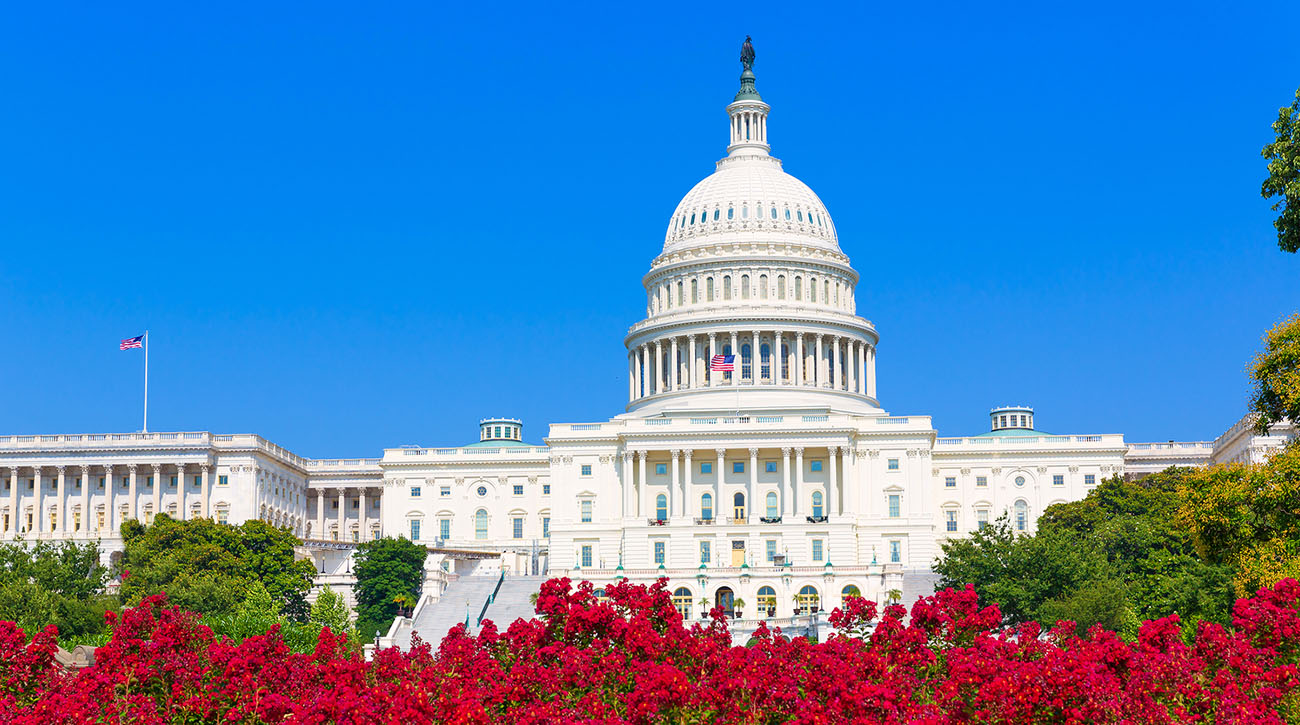Governmental policies play a significant role in promoting environmental and occupational public health. The George Washington University’s Milken Institute School of Public Health (Milken Institute SPH) is the only school of public health in the nation’s capital. Our students work with and learn from faculty who have played key roles in federal government, including the Environmental Protection Agency and the Occupational Safety and Health Administration, and some continue to serve as regulatory advisors. Students also have many opportunities in international public health and are just minutes away from a wealth of options for experiencing our national government in action—and sometimes history in the making.
The many events that students in the Department of Environmental and Occupational Health (EOH) attend, often for class credit, include congressional hearings and briefings—sometimes featuring EOH faculty. Among the recent hearings and briefings that students have attended, or that have featured faculty, are events on presidential appointments, toxic substances regulation, and issues of concern such as the Flint, Mich., water crisis, the perils of using antibiotics in livestock, the safety of consumer cosmetics products, and occupational exposure to silica dust. From time to time, students, faculty and alumni also participate in White House events, and sometimes even White House parties!
Many EOH MPH students complete their practice experience, or practicum, requirements at institutions and organizations in D.C., including the federal government. GW’s extensive network of public health settings enables students to partner with some of the very top national and international health organizations. The many health programs within the U.S. government located in D.C. where EOH students have completed practica and internships include ones in the U.S. Agency for International Development, the U.S. Environmental Protection Agency’s National Center for Environmental Research, Office of Research and Development, and Office of Water, as well as at the U.S. Global Change Research Program. International organizations with D.C. offices where EOH students have completed practica include Population International, the Pan American Health Organization and the World Bank.
EOH students can also take advantage of a wide range of opportunities on GW’s campus. Students in the department’s popular Sustainable Energy and the Environment class get an opportunity to tour the entire Milken Institute SPH building to learn about the LEED Platinum-certified structure’s many green features. Some EOH classes take place in the school’s new Science Engineering and Health building, which also features cutting-edge laboratories run by EOH faculty. The department regularly holds seminars on important topics in environmental and occupational health, such as a recent one on why exposure to nature can make us happier and healthier. The university also convenes an annual Research Days event, where students can present posters describing their research projects—and sometimes win awards.
The ability to study public health in the heart of the nation’s capital at GW’s Milken Institute SPH comes with many advantages for students who want to make a real difference in the world.


